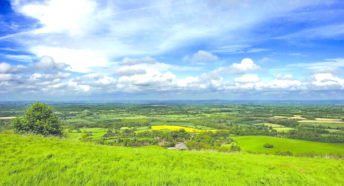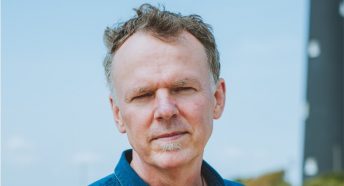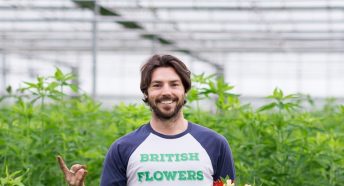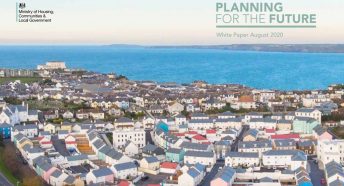First CPRE national apprentice visits CPRE Sussex
David Johnson recently met CPRE’s first national apprentice, Ketsia Tampo, to offer his reflections on his six years as CPRE Sussex chair and his hopes for the future of the countryside.
Ketsia: David, what was your first connection with the countryside?
David: I’m not essentially a country person by trade or upbringing, but when I was at school I joined the Young Farmers, until my parents pulled me out because I was drinking too much cider! So I’ve always experienced the countryside for enjoyment – walking and riding, and valued it on that basis. I did have a job in my teens, working on a tiny farm of 50 acres, riding on a horse-drawn milk float and hand crimping the bottle tops.
Ketsia: Having grown up and lived all my life in London, I got my opportunity to connect with the countryside through the National Citizen Service (NCS) programme in 2017. For one week they took us out to the countryside where we could try a range of activities – including climbing.
David: Initiatives like that can help young people understand that being outdoors isn’t just about being good at team sports, and that they can try things like climbing. But we need to take kids out to the countryside to give them these opportunities. Many of the interests people have at primary school – tending plants and going for nature walks – seem to get knocked out of them at secondary schools. So we need more schemes that maintain these relationships with nature.
Ketsia: Being in the countryside, away from the stresses of city life, seemed to give us the time and space to get used to a very different environment – and start to enjoy those differences.
David: It’s so important that we create a feeling that the countryside is a place for everyone to enjoy. Because If you’re unfamiliar with it, the countryside can seem a genuinely daunting place – governed by secret understandings and ways of doing things.
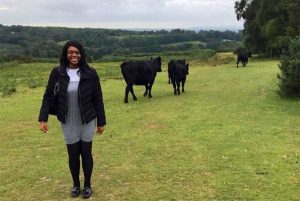
Ketsia: I think being in unfamiliar surroundings forced us to really engage with the wildlife and scenery. We noticed all the details that might normally pass us by in London, but the fact we couldn’t get a phone signal definitely helped!
David: We need everyone to develop those deeper connections with a countryside. That’s how we get more people to understand its true value, and be able to weigh up the big choices that affect our environment. After all, the future of the countryside is usually decided in towns, by people who live in towns.
Ketsia: One of the things I value most about the countryside is the peace and quiet – I can actually feel my mental and physical wellbeing increasing the longer I am there.
David: I’ve always believed that the countryside is essential for the long-term wellbeing of everyone – not just through access to greenness, nature and the wild, but through the cultural and spiritual enrichment that can be achieved through shared experiences and challenges.
Ketsia: I felt something like that during NCS, when being closer to nature seemed to make people more sociable, and open to trying new experiences. None of us even got homesick! But how can people who don’t live in the countryside keep that feeling alive?
David: CPRE Sussex is doing things to keep people engaged – including our Plant your Postcode initiative, which we hope will inspire urban communities to take ownership of their little green spaces, and bring the countryside into the town. Greenness starts from the plants on your windowsill, and the trees on the street outside. Unless we have healthy, successful towns, we’ll always be chipping away at the countryside.
Ketsia: And I know that CPRE Sussex is being positive about a green and healthy planet.
David: Absolutely. We supported a climate emergency summit in October, where we heard positive examples of how communities can become more sustainable and self-sufficient in energy. The following day we had a free event just for young people, who had the chance to meet scientists from Sussex University and other local environmental organisations. In the context of the climate emergency, the emphasis on new roads and airport expansion is completely wrongheaded – and would come at a huge cost to the environment and wellbeing.
Ketsia: Finally David, what do you love most about the countryside?
David: The mixture of continuity and change. I really enjoy galloping a horse on a soft bridleway under trees, when you realise you are going down an old drover’s road that would have looked the same 500 years ago. We still have farming methods that the Romans would recognise, but the landscape has also been constantly evolving over thousands of years. The excitement of Sussex – and really all of the English countryside – is about variety: the scenery and the ground beneath your feet changes constantly.

